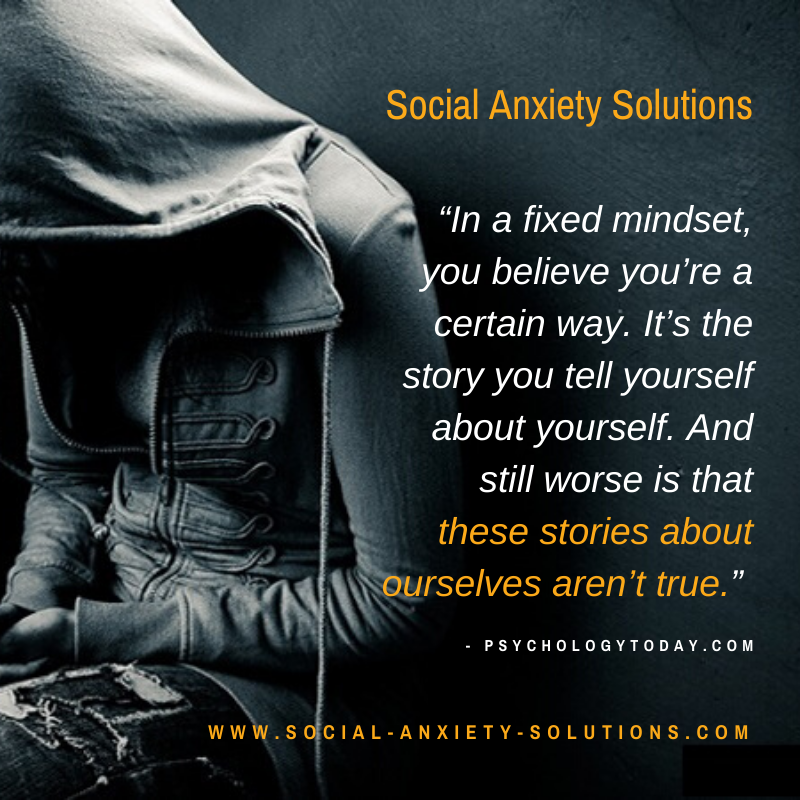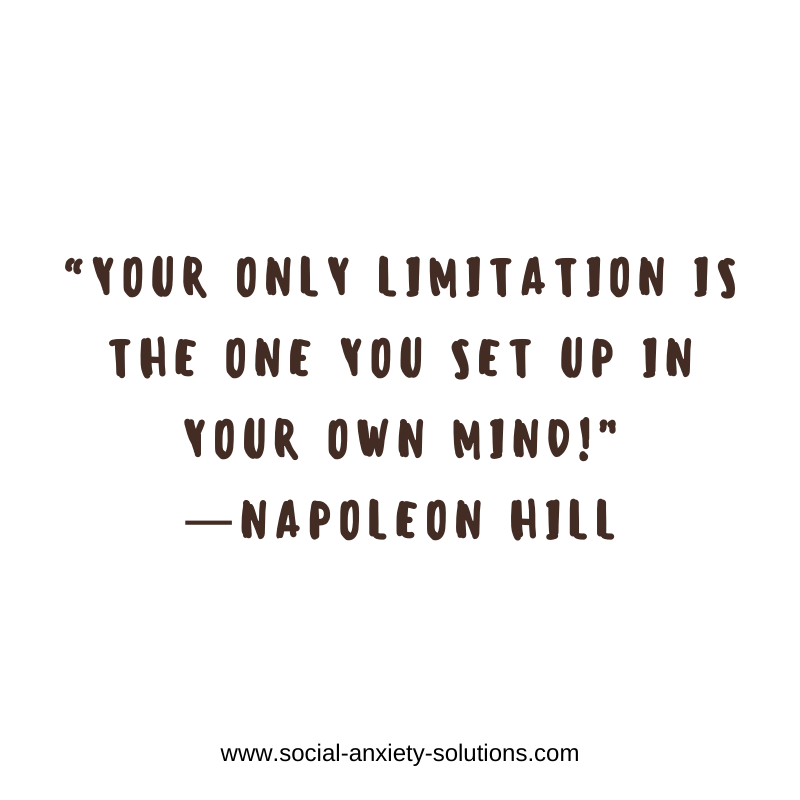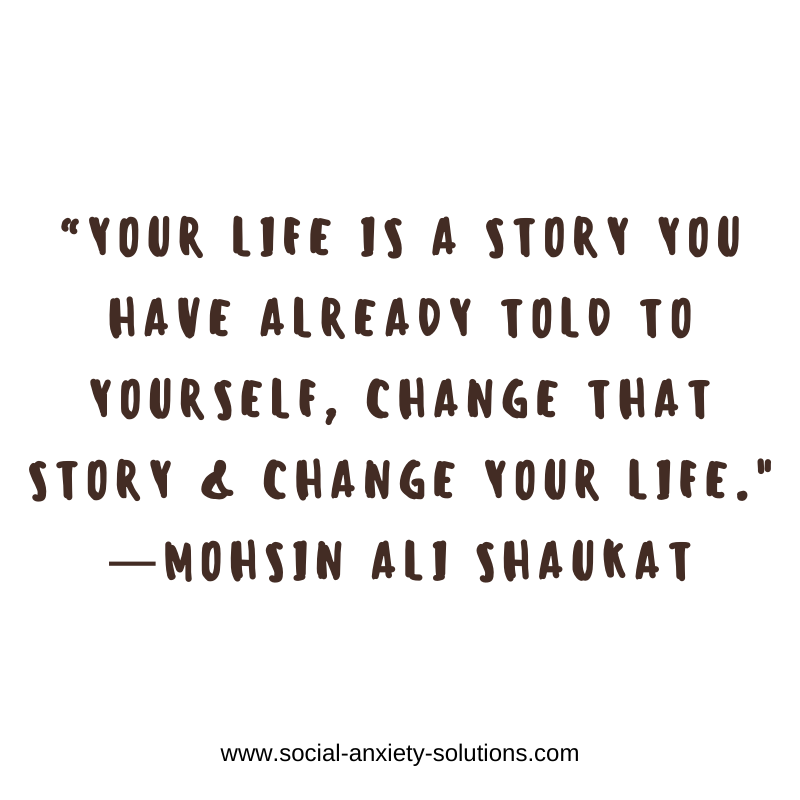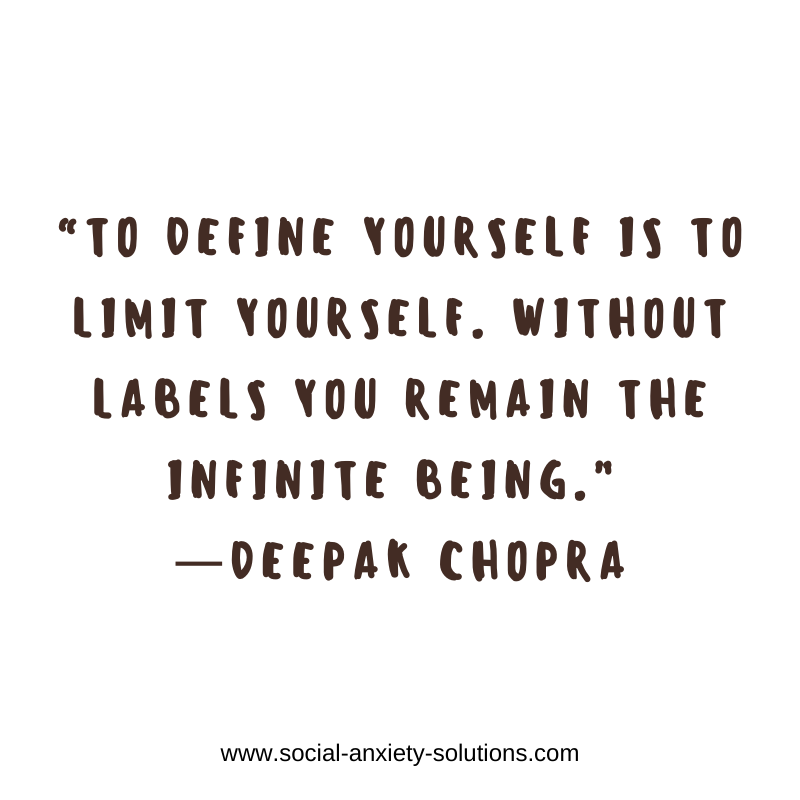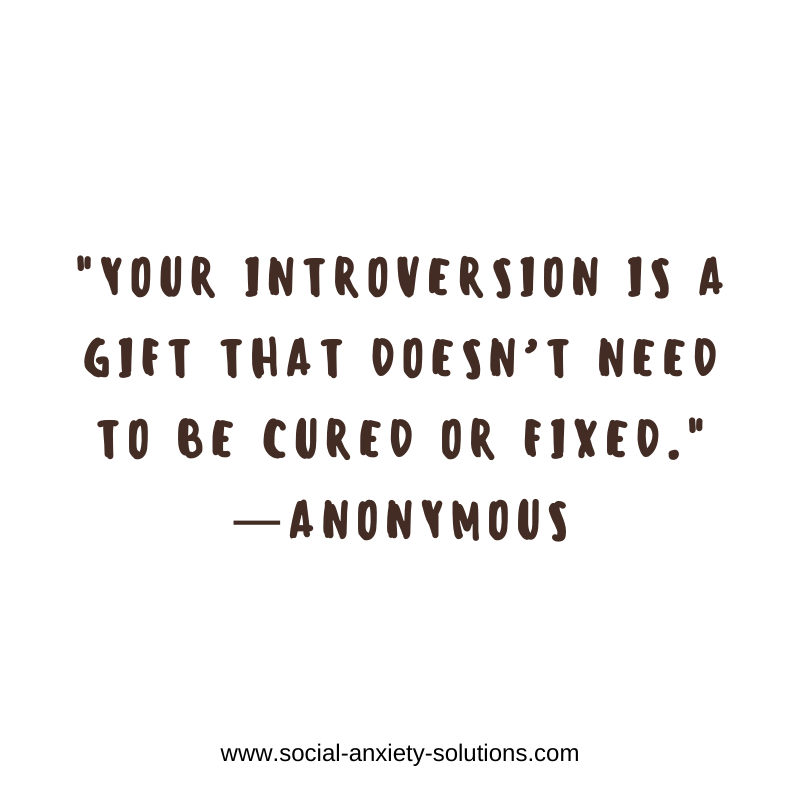SUMMARY
Is being an introvert the reason as to why you are socially anxious?
Is it better to be an extrovert because that will make it easier to be socially confident?
Before you make that conclusion, learn about what truly hinders introverts to be socially confident. And, what makes them avoid potentially stressful social situations. You’ll also discover what to do with a psychologytoday.com article refers to as “a fixed mindset”.
FULL TRANSCRIPTION
Hi, this is Sebastiaan from social-anxiety-solutions.com and I am a Social Confidence Coach. I help people with social anxiety feel calm and at ease in a social situation.
This week, I’m going to talk about, “Why Introvert People Can Be Socially Confident and At Ease and Comfortable.” I talked about that because I’ve had 3 instances this week where someone, either sent to me or wrote to me that they were introverted and therefore, they would have such a hard time being socially at ease and it a lot easier for extroverted people.
Well, maybe. Maybe it is easier for extroverted people, I don’t know. I happened to be extroverted so I can’t really talk about what it’s like to be an introvert. But, what I do know is that I have introverted friends who are perfectly at ease socially. I also interviewed a colleague, a psychotherapist who incorporated Energy Psychology into her practice, on this exact topic – introverts being socially confident. As I was doing research for this video, I was reading a fascinating article from psychologytoday.com called, “The Majority of People Are Not Introverts or Extrovert”. The article goes on to explain that most people are actually “ambiverts”. The largest part of the population have introverted tendencies as well as extroverted tendencies. There is a small part of the population that is actually, let’s just say “hard-core” introverted, and there is another part of the population that is “hard-core” extroverted, if you want to call it like that.
When I looked at my own life, that accounts for me as well. Yes, I get energized by hanging out with people. But yes, I also get recharged by spending time by myself. It’s really hard to exactly pinpoint who it is that I am – however that weird that sounds.
Why I bring up this article is because there is something interesting in there and I’m going to read it for you. Here we go:
To be sure, diehard introverts and extraverts do exist, but they’re exceptions, and they may be worse for it.
In fact, such extreme leanings could be the result of what psychologist Carol Dweck calls a “fixed mindset.”
Over several decades, research by Dweck and others has differentiated between a growth mindset—believing you can cultivate your qualities and personality with effort—and then, fixed mindset—the conviction that you have a set amount of intelligence or talent, a fixed personality, and immutable character.
A recent study positioned a fixed mindset as “self-as-story”: You believe you’re a certain way; that’s just who you are. It’s the story you tell yourself about yourself.
The study explained, as an example, that “a person who conceptualizes themselves as introverted may have difficulty recognizing or remembering their own extraverted behavior, and they may avoid potentially stressful social situations and come to live in an increasingly insular world.”
Then the lady of the article continued saying, “After taking some personality tests in college, I decided that I was an introvert. But then, I noticed that the more I saw myself as an introvert, the more introverted I became.
At 18, I thought I was the life of the party. By 25, I had almost convinced myself that I was psychologically incapable of speaking in public.
“Self-as-story” tendencies are associated with reduced wellbeing, particularly in those “self-as-story” tendencies are associated with reduced wellbeing, particularly if those self-conceptualizations are negative.
Fixed mindsets are correlated with reduced performance, as well as a lower self-esteem, creativity, resilience, and self-awareness.
And still worse is that these stories about ourselves aren’t true.
The article continues but I read this particular part of the article to you because, isn’t in fascinating? So what she is saying, that has also been my experience in coaching.
People have a particular idea about themselves: “I’m an introvert.” And because you have labeled yourself as an introvert, you don’t allow yourself psychologically to think beyond that. “Oh, I can’t do that. I can’t be socially at ease because I am an introvert. I can’t speak my mind because I am an introvert. I can’t speak my thoughts out loud because that’s not what introverted people do.”
You got a label on yourself and it’s keeping you stuck. Not only that, I also find that people have a label of themselves of “I am socially anxious.” And guess what, now you are going to be limited to that. So don’t identify yourself with that.
Also, what I found happening is that people have particular life-changing experience. Maybe they get beat up, or maybe they get bullied, or maybe they can rejected harshly, and it happens maybe somewhere in puberty. Then, they make up this image about themselves who it is that they are. Then, 20 years later, they, on a subconscious level, still connect to that particular identity or that particular self-image that is extremely limiting. Luckily, you can tap and free yourself of that. But that is a different story and it is not exactly what this video is about.
This video is about is, you might be one of the extreme introverts, who knows. Or you are likely an ambivert, and potentially you are even an extrovert. I, for a long time, thought that “Hey, maybe I am an introvert because I am avoiding so many social situations”. But by nature, I am such an extrovert. You can see me in a social situation and I’m very there. I’m loud and obnoxious as I am now.
So, whether you are an introvert all the way on that side of the spectrum, or you are an extrovert all the way on the other side of the spectrum, it doesn’t matter because you can still feel at ease socially. Feeling at ease socially doesn’t come from having a particular social skills. It doesn’t come from being able to manipulate people into liking you. It doesn’t come from saying the right things all the time. It doesn’t come from being able to avoid awkward situations.
Instead, it comes from feeling safe to be yourself. In other words, you’re okay with you. You are okay with the great sides of you. You are okay with the not-great side of you. You are okay with whatever people think of you. You are okay with making a bad impression. You are okay with making a good impression. You are confident that you are able to handle whatever comes your way when you feel really good about who it is that you are. You like yourself and you expect people are liking you too. And so, you feel safe just being yourself, whether that is an extrovert or whether that is an introvert.
Like I said, I probably am an ambivert but more on the extroverted side. Sometimes, I have an off day -like anyone- and I’m not really, maybe I just had a healing session, or a long night out, or I slept wrong, or whatever the situation be. Maybe I have some trouble in my life or some drama -who knows, life happens- and I’m just not feeling very good, which happens. So then, when I am in a social situation, I might not have the energy to be extroverted. Fine, then I will just hang along the side. People might say, “What’s up with you?” And I might tell them, “Not having a great day. Move on.” I’m not always showing up as the extrovert. Sometimes, it is actually better for me to shut up for a while because something else is going on. I can tell myself, “Okay, it’s time to just lean back and listen and let other people take the stage.”
All of that are just common sense. Some normal stuff that automatically happens when you are at ease, when you are just okay. All of that is a result of feeling safe to be yourself socially. So that’s the work. And that’s where you can get yourself into, whether you are an introvert, or an extrovert, or an ambivert, or anything in between. It is just a matter of doing the work: of healing your emotional wounds, getting rid of these beliefs about who it is you are – I am an introvert and I can’t move outside of that – get rid of that crap. Do your tapping work and all that. There you go.
Some real quick announcements at the end of this video.
I am planning out the content for the whole coming year. I’ve got some really new, awesome, and exciting stuff coming out. I am excited to bring that out.
I also just did another interview with someone who overcame her social anxiety through the Social Confidence Community that I ran last year and I might be running that out somewhere this year. Once I actually find sometime. So that’s all happening, exciting stuff.
Thanks for watching this. If you have insights that you can share that can help someone else or if you have a particular question about this, leave them in the comments below and I will be there answering that. I get notifications and I answer most questions I’d say.
If you want to check out the interview I did with Ulrike, I guess her last name is Weissenbacher (I’m sorry Ulrike if you are watching this). Anyway, she is an amazing lady. She is a psychotherapist. She is trained in many different modalities. I interviewed her in my podcast. It is Podcast # 51 on this particular topic. It is called, “Socially Anxious Introverts versus Extroverts”. She there shares her insights between introverts and extroverts and how introverted people can become socially confident too. I think you might like that. We will link that video below.
If you want to subscribe, click here. Have a great week and I will talk to you soon. Bye for now.
If you experience Social Anxiety, click below to receive the FREE “7 Secrets to Social Confidence” Mini Course!
- How To Stop Worrying - January 17, 2024
- How to Reduce Facial Blushing with EFT Tapping? - June 29, 2023
- Are You Scared to Get Anxious? Here’s how to fix it! - June 16, 2023



